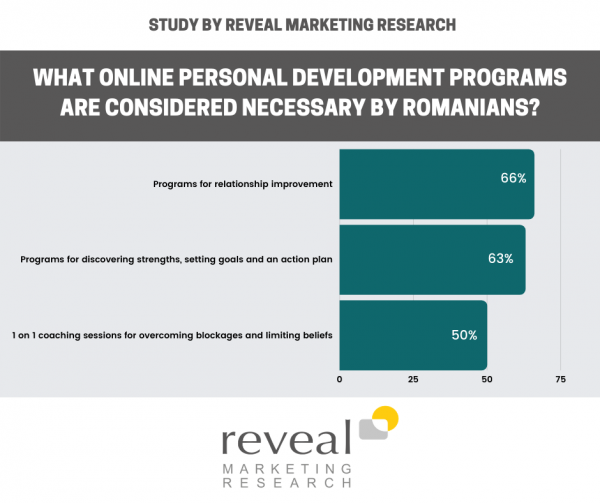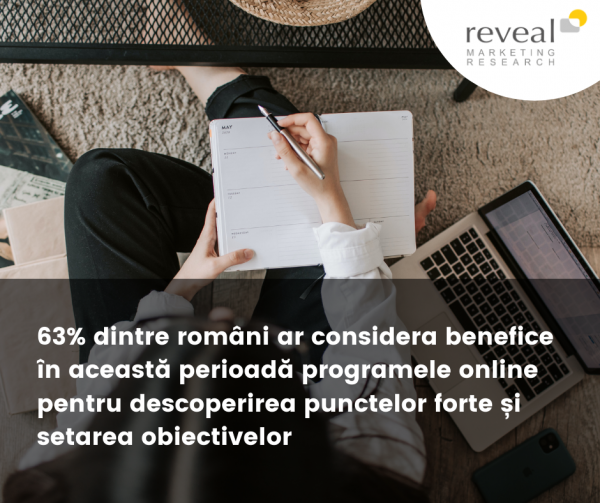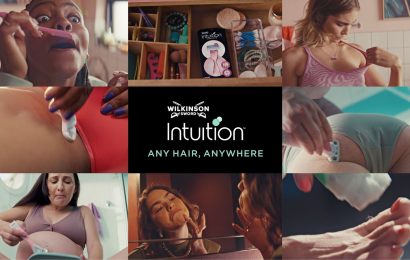2 out of 3 Romanians consider that they need to improve their social relations in the context of the pandemic
In recent years, the concept of personal development has grown in popularity, with more and more people enrolling in such programs, willing to learn how to become the best version of themselves or how to engage in healthy relationships with others. The times we live in, along with the challenges that society has gone through this year, have made people appreciate more their personal relationships, on the one hand, and have forced them, on the other hand, to reconsider their future plans.

Probably the most important realisation in the context of COVID-19 is that anything can happen at any time, and in order to be ready for the unpredictable, people have to take safety precautions. How do they do that? Many of them set out to develop personally and professionally, and to learn new things. All this, just to be well-equipped to adapt to socio-economic changes. In this context, Reveal Marketing Research conducted a study to see what is the Romanians’ perception towards online personal development programs.
The method used was CAWI (Computer Assisted Web Interview) and 1015 online interviews were conducted with respondents over the age of 18, on a nationally representative urban and rural sample between November 12-18, 2020. Sampling error +/- 3%. Confidence level: 95%.
Relationships and connecting with others
Asked to what extent they consider that personal development programs would be necessary for them during this period, 2 out of 3 Romanians’ believe online programs for relationship skills improvement to be useful. According to Reveal Marketing Research, young people would be very interested in such programs, single millennials selecting this option in proportion of 66%, and young professionals in proportion of 64%. Their preoccupation for social skills development is understandable, given the COVID-19 context which has greatly affected the way we relate to each other. For young people, social distancing appeared at a time in their lives when socialization was among the most important aspects. Therefore, they feel the need to improve their relationships with others.
At the same time, 71% of traditional families and 68% of modern families have expressed interest in online programs aimed to improve relationship skills. The new context requires new skills and abilities, and people are trying to find ways to self-develop in this regard.

Discovering strengths, setting goals and an action plan in your career or personal life
Single millennials and young professionals said they are interested in programs that might help them in both personal and professional development (73% and 71%, respectively). For them, it is important to discover their strengths, to set goals and to establish an action plan in their career, but also in their personal life. Being at the beginning of their career and gradually stepping into adulthood, young people would like to be able to discover how to better cope with changes in their life with the help of dedicated online programs. The labour market is increasingly competitive, especially in the context of the pandemic, therefore young people want to increase their chances of success.
Women are the ones who are more interested about self-development, 68% of them with this option, compared to 58% of men.
According to Reveal Marketing Research, more than half of single adults (52%) are concerned about the same thing and find such programs to be useful. Although they have a lower percentage, compared to other segments, almost half of the retired seniors (48%) would be interested, to participate in a program to help them discover their strengths. Even if they are no longer active on the labour market, curiosity may urge them to personally rediscover themselves.
1 on 1 coaching sessions for overcoming blockages and limiting beliefs
Half of the respondents stated that they would need 1 on 1 coaching sessions. 56% of traditional families, followed by 51% of modern families and half of single millennials believe that these sessions would help them overcome blockages and beliefs that limit their development. We notice that most segments express the need for self-improvement. On the other hand, single adults are less interested in such coaching sessions, only 37% of them opting for this option.






